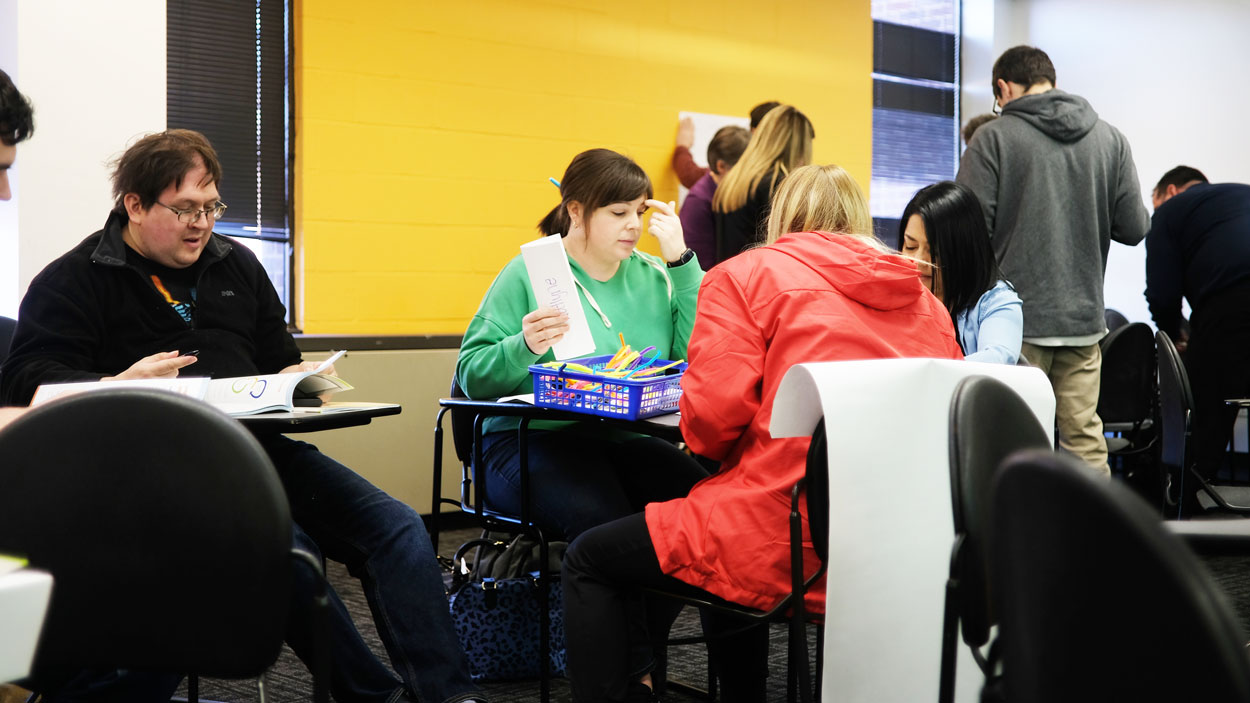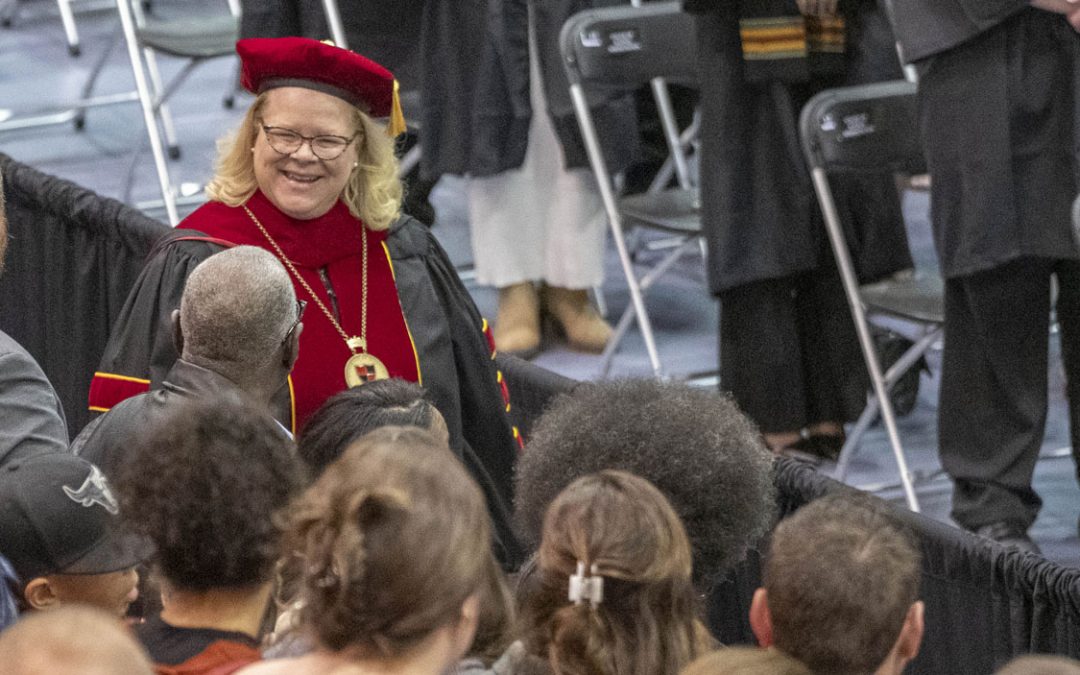
The College of Education and the Missouri Institute of Mental Health collaborated to put on an all-day training session in mental health awareness on Feb. 23. During the event, 125 teacher candidates in the College of Education worked with mental health professionals and educators to earn certification in Mental Health First Aid. (Photo by Burk Krohe)
More than 100 future teachers darted about five classrooms in the Social Science and Business Building, discussing then recording signs and symptoms of common mental health challenges on large pieces of paper taped to walls.
The “gallery walk” exercise was part of an all-day training session in mental health awareness on Feb. 23 at the University of Missouri–St. Louis.
During the event, 125 teacher candidates in the College of Education worked with mental health professionals and educators to earn certification in Mental Health First Aid, an international, evidence-based program operated in the United States by the National Council for Mental Wellbeing in partnership with the Missouri Department of Mental Health.
The College of Education and the Missouri Institute of Mental Health collaborated to put on the training session, which was supported financially by a $200,000 grant for mental health awareness training from the Substance Abuse and Mental Health Services Administration.
“Our goal over the next three years of this grant is to train about 1,600 pre-service teachers across Missouri,” said Amy Bartels, project manager for Mental Health First Aid at MIMH. “Right now, we have the four UM System schools on board, and we’re actively recruiting other teaching schools across Missouri.”
The amount of time educators spend with young people on a day-to-day basis puts them in a unique position to intervene during crisis and non-crisis mental health situations.
That idea led Rachel Taube, director for Mental Health First Aid at MIMH, and Emily Oliveira, associate clinical professor of counseling and director of the Counseling and Social Advocacy Center in the College of Education, to collaborate on a grant proposal for a mental health seminar aimed at future teachers in early 2021.
Initially, the grant wasn’t funded, but the pair eventually found resources to launch the inaugural Mental Health First Aid training in November 2021. Since then, Taube and Oliveira have received federal funding from SAMHSA to support that work.
The certification session focused on Youth Mental Health First Aid, a course specifically geared toward helping adults, such as parents and teachers, recognize signs and symptoms of mental health concerns in adolescents. The course reviews typical adolescent development and introduces common mental health challenges for young people and topics such as anxiety, depression, eating disorders and substance use.
“We are really hoping that people walk away with the tools to be successful when working with a young person who’s experiencing a mental health challenge or crisis,” said Heather Craig, a Youth Mental Health First Aid instructor. “So we’re talking about our action plan, we’re talking about what it looks like to give initial help, to listen to someone nonjudgmentally and making sure that people have the tools to assist a young person in crisis.”
Craig said it’s critical for teachers to have these tools because students aren’t immune from mental health struggles.
“I think our children now are facing a lot more than maybe even we did as children,” Craig said. “It is really important to have all of the adults in their life be conscious and aware of the fact that children are experiencing a lot. This is critical to have in all teachers’ toolkits.”
Jacob Braun said he learned a lot of new information and enjoyed that the day was broken up between lectures and activities. Braun is pursuing his teaching certification through the Teach in 12 program, which allows post-bachelor’s students interested in teaching to earn their certification in 12 to 15 months, and will continue studying to earn his MEd.
He intends to teach elementary school and noted that the training will support his work in the classroom.
“It made me more aware of what to look for with my students in case any of them are going through something that they need to talk to me about,” he said.
Emily Frick, Emily Giljum and Sara Mullins worked together in the same group and are all working toward bachelor’s degrees in education.
“We’ve touched on a lot of different things that could be important and useful throughout our time not only student teaching but our teaching in the future,” Frick said.
For instance, Mullins pointed to fostering a greater awareness around the language educators use every day in the classroom. Giljum added that building relationships is crucial to being effective as a teacher and training in mental health can help teachers show support for students.
“How do you have that conversation? That’s what today’s about,” Mullins said. “Talking to someone who maybe doesn’t know how to express their feelings or their brains aren’t exactly developed yet, so you have to help guide them.”














